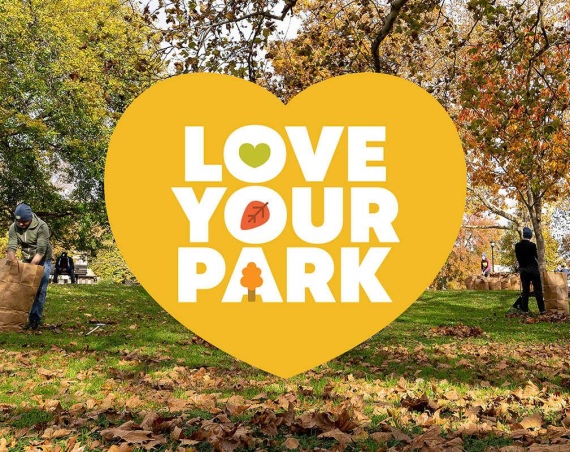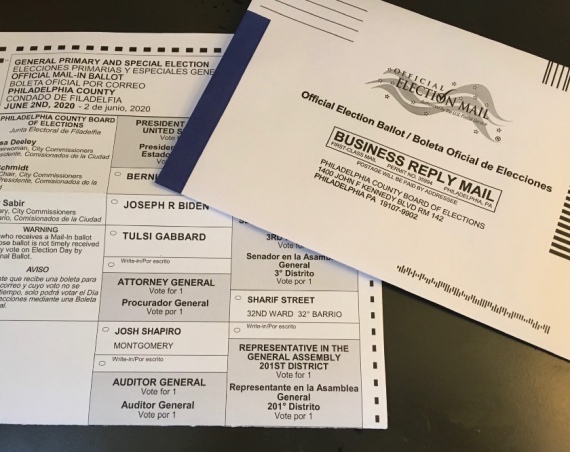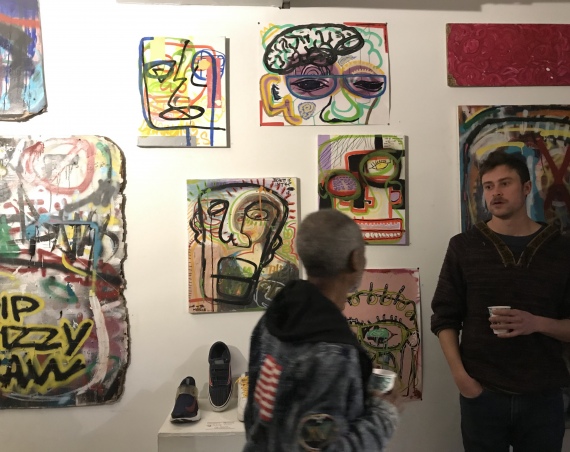At 5423 Germantown Avenue sits the Black-owned fine art gallery owned by Steven Taylor. The Ubuntu Fine Art galley replaced the old Cunningham Piano Factory on September 5, 2021. The owner says the space is his way of paying it forward to the community where he was born and raised.
Ubuntu (oo·boon·too) means “humanity to others.” The spirit of Ubuntu reminds people “I am because we are.”
“It’s really about sharing,” says Taylor about the philosophy of the name and how it influences the feel of the gallery. “I hold the belief that people have shared so much with me, so part of the gallery experience that I wanted people to have was sharing a part of me.”
I experienced this firsthand during my visit a few weeks ago. It was a Saturday morning when I first walked into the gallery with a friend of mine. Taylor approached us and exchanged handshakes and “hello’s.” He told us to let him know if we had any questions… I couldn’t have imagined that we’d be there an hour later, still asking questions.
Taylor was confident yet relaxed, and he was elaborate in all of his responses. I learned about places that felt almost mystical by looking at the photos while discovering the techniques that bring them to life. The pillar in the middle of the studio, on the right side, held a beautiful portrait of a Kenyan man covered in blue and red cloth. The man rested his left hand on his lower back and the right on his cane. His skin was glowing, from the fire burning in front of him. I felt the warm aura of the fire through my eyes.
There are many mediums that Taylor uses to breathe life into his photos and categorize them as fine art. Everything from the frame to the angle of the lights helps him transform this gallery into a view of the beauty that he sees worldwide. He prints his photos on rare metallic paper that has a high gloss. The light fixtures are angled strategically, just enough to display that same warm glow I sensed when I observed Taylor’s canvas of the Kenyan man, “The OG #2” piece.
As a process-oriented person, Taylor says this very thing made him nervous for days leading up to the opening. “I just wanted to make sure everything was right and that they noticed it. And they did.”
Many displayed pieces are for sale and come in different sizes and prices, starting at $150. But Taylor assures customers that it’s worth it, as he commits to the highest quality possible. All of his pieces are printed with archival ink and on archival paper. Images come with a thank you card, a letter of authenticity, care instructions, preferred framing instructions, white archival gloves, and archival packaging. These materials help the art survive its 150 years plus life expectancy.
“Our thing is about maximizing the quality of that investment when we are no longer here to enjoy it,” Taylor says about the care kit included with his work.
Taylor grew up on Chew Avenue in East Germantown and says he had a “great” childhood. He continues, “I love where I’m from,” to explain his reasoning for having this gallery in his hometown and neighborhood. “The skills that I used to traverse the corporate world, I learned here, forreal forreal.”
A part of that paying it forward is bringing spaces like this gallery that are only sometimes available to communities of color through school trips, directly to the neighborhood. “The business sense tells you don’t do that because the people can’t support it,” he said, standing neutral in that position. “But, the idea is to change the model so that people can support it because if it were there, they would support it.”
He says emphasizing agency and equity within our communities is key to seeing the value in our spaces. He says historical significance is not applied to Germantown the same way as Independence Mall. However, it is older and holds high historical value. “To me, the art gallery is in a special place. That special place just happens to be my neighborhood,” Taylors chuckles.
The owner sees this art gallery as a small piece of a more considerable remedy to the crime we bear witness to in the neighborhood and across the city. Taylor was a criminal justice major in college, so he sees the link between access to resources and crime rates. He re-emphasizes the idea of Ubuntu, saying, “people don’t know what they don’t know.”
“When schools are underfunded, and the outlets get cut, it’s more difficult for the children who are growing up in a completely different environment than I would’ve grown up in,” he says.
Taylor wants neighbors to not see crime as a determinant of value for neighborhoods. It’s the caliber of people who set examples that create the value. Staying rooted in the community is vital to him. Too many times has he seen people achieve higher status and then neglect the places that built them. He says when more people stay, those people create more opportunities.
“Find a need and fill a void,” the photographer says. “When you see what that need is and you can articulate it for yourself, you fill that void. And you don’t ask for permission.” He says galleries aren’t the only solution. There are “non-profits, violence prevention/intervention, counseling,” and other ways.
For the time being, Taylor invests most of his time in perfecting his craft. He hopes that he’ll be able to create his own paper within the next two or three years since his goal is to have every piece of his work manufactured by his hand. And he still has a passion for continuing to learn from people. He hopes that from his work, people will understand that “beauty can be seen in all spaces and places.”
Neighbors can look forward to the space hosting community events like mixers and in-depth conversations. Taylor hopes the space can accommodate the meeting of intellects that will propel ideas, thoughts, and positive Blackness. But, if anything, he wants you to leave the space “feeling good or feeling better.”
Ubuntu Fine Art is open from 11 am to 6 pm on Thursday through Sunday and by appointment only Monday through Wednesday.



